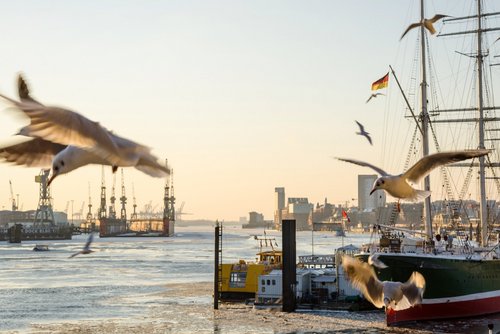On Saturday (October 10), a mass demonstration against TTIP will be held in Berlin. There is no doubt: It makes sense to accompany the negotiation process critically. This is necessary to communicate the concerns of many stakeholders during the negotiations. But skeptics of the trade agreement often stoke excessive fears. This unwarranted alarmism could bring the agreement over the tipping point. This would be fatal for the role of the European Union in international trade policy.

Fair critisism instead of panicmongering
Everything new is associated with uncertainty. Therefore, it is understandable that many citizens consider the planned free trade agreement between the EU and the United States - short TTIP – with scepticism. As the single European market became a reality in 1993, there were similarly skeptical voices: According to Eurobarometer survey in 1993, 39 percent of Europeans considered the introduction of the Single Market with fear. Today it is hard to imagine that Europe was once so divided on this issue. Meanwhile, the macroeconomic effects of the Internal Market have proven to be clearly positive.
Now, the demonstrations are directed against TTIP. The critical support of the negotiation process have had in recent years some positive effects. As a result the European Commission has increased the transparency of the negotiation process. Furthermore, the negotiators initiated a range of stakeholder events in order to have a chance to address their concerns in the negotiations.
Nevertheless, the arguments of the critics are often questionable. Hormone treated meat, privatization of the water supply, risk for the autonomy in wage bargaining - all of these would come with TTIP. Critics of globalization, partly driven by their latent anti-Americanism, are often the source of inaccurate information about the negotiation process. The result is unfounded fear, which could lead in the worst case to shrinking majority for TTIP in the European Parliament.
The failure of TTIP would have fatal consequences for the EU since TTIP offers a central opportunity for the EU to emphasize its will to develop standards in international trade and investment policies. Furthermore, the bilateral diplomacy between the EU and the US would suffer if the efforts to TTIP proved fruitless.
And: Critics of globalization should look on the bright side of the EU having a say when it comes to the global trade rules. Otherwise, the world is changing without the participation of the European countries - this week, Americans have concluded, for example, negotiations with eleven trade partners about the Trans-Pacific Partnership (TPP). Accordingly, those who want to demonstrate on Saturday, should be aware of their responsibilities.
More on the topic
Not so Different?: Dependency of the German and Italian Industry on China Intermediate Inputs
On average the German and Italian industry display a very similar intermediate input dependence on China, whether accounting for domestic inputs or not.
IW
China’s Trade Surplus – Implications for the World and for Europe
China’s merchandise trade surplus has reached an all-time high and is likely to rise further. A key driver appears to be a policy push to further bolster Chinese domestic manufacturing production, implying the danger of significant overcapacities.
IW